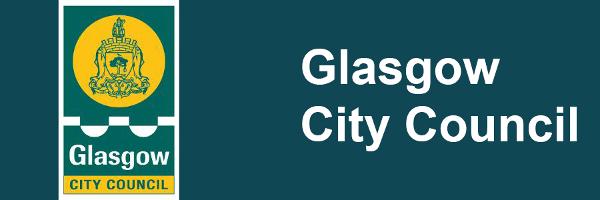Modest Hero Saves Stranger Attempting Suicide
Published: 4 September 2018

Tragedy was averted when a passer-by spotted a stranger attempting suicide as he walked home from work.
Other pedestrians froze as the man teetered on the edge of a Glasgow bridge, but health programme volunteer, Willie, kept calm and set about saving his life.
As someone frantically dialled 999, Willie slowly approached the distraught man and quietly engaged him in conversation. It was a chat which prevented his death.
Ahead of World Suicide Prevention Day on Sept 10th, Willie - who volunteers for alcohol awareness programme, Drink Wise, Age Well - revealed why he didn't panic after chancing upon the life or death scenario.
The modest hero said: "My adrenaline was pumping when I first saw him, I'd never seen anything like it, except on TV, but my Suicide Prevention Training kicked in. I remembered you should talk to someone in that situation. I told him my name and tried to get him to tell me his.
"I didn't get too close, because I didn't want to panic him, but I could see he was clutching a half bottle of wine and was clearly very drunk."
The 66-year-old grandfather from Glasgow's East End tried to strike up a conversation with the man and expressed sympathy, but the stranger was reluctant to give his name and initially told Willie to "F... off".
Undeterred, he persevered, empathising with the man and trying to convince him life was worth living.
Willie said: "All I was thinking, was I hope I can talk this guy round before he jumps. I said it didn't have to be like this and tried to persuade him to come back over on to the bridge where it was safe. I told him, if he came back over, I'd get a bottle and we could have a drink together and talk. I wanted to divert his attention from what he was about to do."
Gradually Willie earned the man's trust and, with a Fire & Rescue boat on the river below, he eventually allowed Willie and another man to pull him back over the parapet. Fire fighters then rushed him to waiting paramedics.
Willie said: "I never saw him again, but I hope he's OK.
"I think if I hadn't had the suicide prevention training, I'd have reacted differently. I might not have intervened, because I was scared I'd make matters worse. I might think he'd jump because of something I'd said and it would all be my fault. There were a lot of people on the bridge but people were in shock. I might have frozen too - if I didn't know how to help."
Glasgow City's Choose Life Coordinator, Pauline Toner, praised Willie for keeping calm under pressure and says the general public can be key to saving lives.
She said: "The number of suicides in Glasgow has been going down in recent years, but every single death is a tragedy. A lot of work is being done to help people before they reach crisis point. But depression and suicidal thoughts are often hidden. Most deaths by suicide take place indoors, out of sight, but some people do attempt to take their own lives in public places and in that situation, the general public can be key to prevention before the emergency services arrive. Training equips people with techniques to intervene in public and private situations while the emergency services are on route. Willie's amazing story proves how vital that can be."
Glasgow Health and Social Care Partnership leads the Choose Life programme which is a Scottish initiative to reduce and prevent deaths by suicide. Glasgow City Choose Life promotes SafeTALK, ASIST and SuicideTALK training.
Around 10,000 people in Glasgow have received the training since it was introduced in 2002. As well as front-line council and NHS staff, retail, food bank, construction and bank employees are among those trained to spot the signs of depression and anxiety and to identify people who may be at risk of suicide. The courses also equip them with information on how to best discuss their concerns with the person involved and persuade them to seek help.
Glasgow Taxi drivers are about to become the latest group to receive the training. They will join thousands of people across the city trained to spot signs of distress and suicide and how to prevent tragedies.
Pauline said: "The very nature of their job means taxi drivers are out and about across Glasgow at all hours of the night and day. This means they may spot someone in distress or at risk of suicide. The training could help them prevent a tragedy until the emergency services arrive. It could also help them spot signs of depression, distress or anxiety among their friends, family or colleagues and enable them to speak to that person in a helpful and understanding way, encouraging them to seek professional help before they reach crisis point."
A suicide prevention awareness session for members of the public will take place in the Spoon Cafe, Glasgow, on September 13th. Register in advance at https://www.yoursupportglasgow.org/glasgow-homepage/pages/suicide-prevention-choice-life/training-opportunities-in-suicide-prevention/
If you or anyone close to you is struggling with issues of suicide, please seek help, either from your GP, the Samaritans (call free on 116 123 or by email at jo@samaritans.org) or Breathing Space (call free on 0800 83 85 87).
Find out more about Suicide Prevention Training and sources of help for anyone struggling at https://www.yoursupportglasgow.org/chooselife.aspx
Drink Wise, Age Well is a National Lottery funded programme that helps people aged 50 plus make healthier choices about alcohol as they age. Find out more at www.drinkwiseagewell.org.uk




